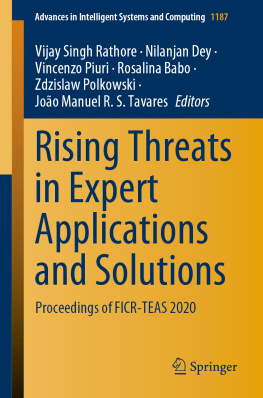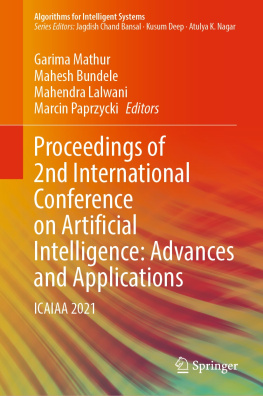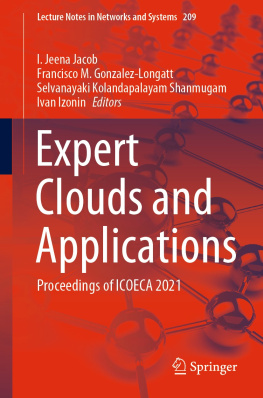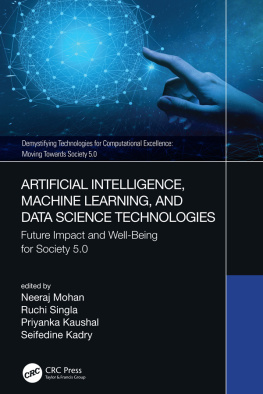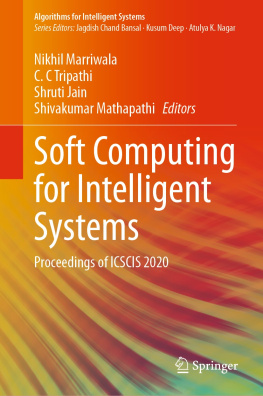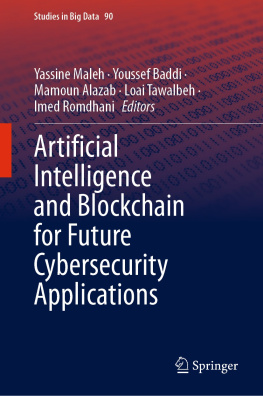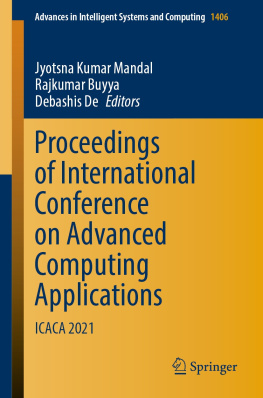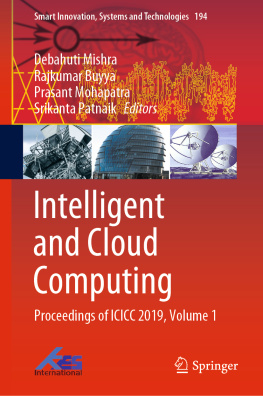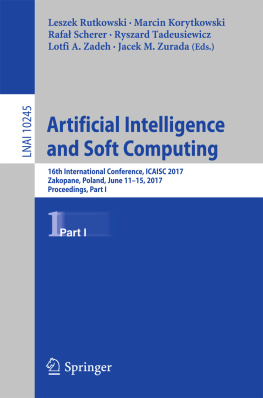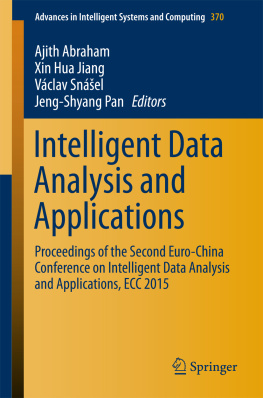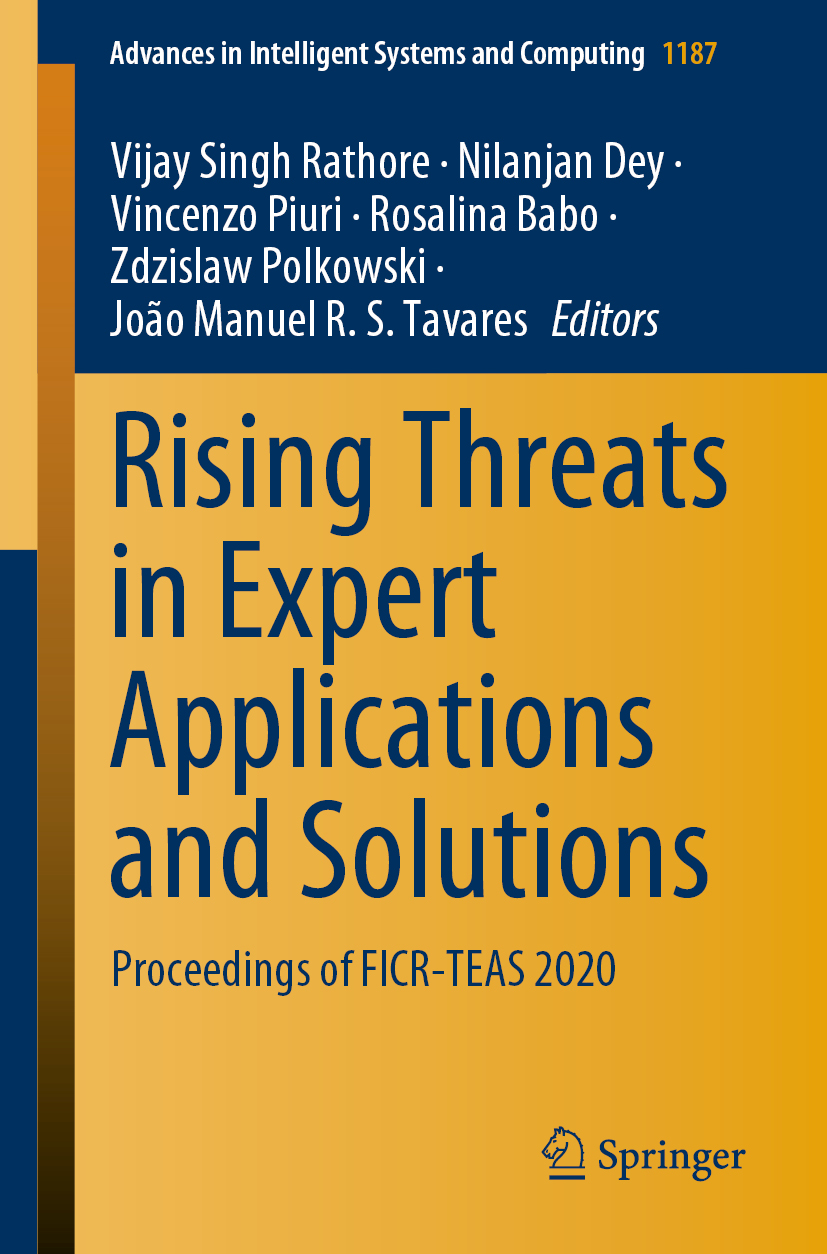Volume 1187
Advances in Intelligent Systems and Computing
Series Editor
Janusz Kacprzyk
Systems Research Institute, Polish Academy of Sciences, Warsaw, Poland
Advisory Editors
Nikhil R. Pal
Indian Statistical Institute, Kolkata, India
Rafael Bello Perez
Faculty of Mathematics, Physics and Computing, Universidad Central de Las Villas, Santa Clara, Cuba
Emilio S. Corchado
University of Salamanca, Salamanca, Spain
Hani Hagras
School of Computer Science and Electronic Engineering, University of Essex, Colchester, UK
Lszl T. Kczy
Department of Automation, Szchenyi Istvn University, Gyor, Hungary
Vladik Kreinovich
Department of Computer Science, University of Texas at El Paso, El Paso, TX, USA
Chin-Teng Lin
Department of Electrical Engineering, National Chiao Tung University, Hsinchu, Taiwan
Jie Lu
Faculty of Engineering and Information Technology, University of Technology Sydney, Sydney, NSW, Australia
Patricia Melin
Graduate Program of Computer Science, Tijuana Institute of Technology, Tijuana, Mexico
Nadia Nedjah
Department of Electronics Engineering, University of Rio de Janeiro, Rio de Janeiro, Brazil
Ngoc Thanh Nguyen
Faculty of Computer Science and Management, Wrocaw University of Technology, Wrocaw, Poland
Jun Wang
Department of Mechanical and Automation Engineering, The Chinese University of Hong Kong, Shatin, Hong Kong
The series "Advances in Intelligent Systems and Computing" contains publications on theory, applications, and design methods of Intelligent Systems and Intelligent Computing. Virtually all disciplines such as engineering, natural sciences, computer and information science, ICT, economics, business, e-commerce, environment, healthcare, life science are covered. The list of topics spans all the areas of modern intelligent systems and computing such as: computational intelligence, soft computing including neural networks, fuzzy systems, evolutionary computing and the fusion of these paradigms, social intelligence, ambient intelligence, computational neuroscience, artificial life, virtual worlds and society, cognitive science and systems, Perception and Vision, DNA and immune based systems, self-organizing and adaptive systems, e-Learning and teaching, human-centered and human-centric computing, recommender systems, intelligent control, robotics and mechatronics including human-machine teaming, knowledge-based paradigms, learning paradigms, machine ethics, intelligent data analysis, knowledge management, intelligent agents, intelligent decision making and support, intelligent network security, trust management, interactive entertainment, Web intelligence and multimedia.
The publications within "Advances in Intelligent Systems and Computing" are primarily proceedings of important conferences, symposia and congresses. They cover significant recent developments in the field, both of a foundational and applicable character. An important characteristic feature of the series is the short publication time and world-wide distribution. This permits a rapid and broad dissemination of research results.
** Indexing: The books of this series are submitted to ISI Proceedings, EI-Compendex, DBLP, SCOPUS, Google Scholar and Springerlink **
More information about this series at http://www.springer.com/series/11156
Editors
Vijay Singh Rathore , Nilanjan Dey , Vincenzo Piuri , Rosalina Babo , Zdzislaw Polkowski and Joo Manuel R. S. Tavares
Rising Threats in Expert Applications and Solutions
Proceedings of FICR-TEAS 2020
1st ed. 2021
Editors
Vijay Singh Rathore
IIS Deemed to be University, Jaipur, Rajasthan, India
Nilanjan Dey
Techno India College of Engineering, Kolkata, West Bengal, India
Vincenzo Piuri
Department of Computer Science, University of Milan, Milano, Italy
Rosalina Babo
Porto Accounting and Business School, Polytechnic Institute of Porto, Porto, Portugal
Zdzislaw Polkowski
Jan Wyzykowski University, Polkowice, Poland
Joo Manuel R. S. Tavares
Faculty of Engineering, University of Porto, Porto, Portugal
ISSN 2194-5357 e-ISSN 2194-5365
Advances in Intelligent Systems and Computing
ISBN 978-981-15-6013-2 e-ISBN 978-981-15-6014-9
https://doi.org/10.1007/978-981-15-6014-9
Springer Nature Singapore Pte Ltd. 2021
This work is subject to copyright. All rights are reserved by the Publisher, whether the whole or part of the material is concerned, specifically the rights of translation, reprinting, reuse of illustrations, recitation, broadcasting, reproduction on microfilms or in any other physical way, and transmission or information storage and retrieval, electronic adaptation, computer software, or by similar or dissimilar methodology now known or hereafter developed.
The use of general descriptive names, registered names, trademarks, service marks, etc. in this publication does not imply, even in the absence of a specific statement, that such names are exempt from the relevant protective laws and regulations and therefore free for general use.
The publisher, the authors and the editors are safe to assume that the advice and information in this book are believed to be true and accurate at the date of publication. Neither the publisher nor the authors or the editors give a warranty, expressed or implied, with respect to the material contained herein or for any errors or omissions that may have been made. The publisher remains neutral with regard to jurisdictional claims in published maps and institutional affiliations.
This Springer imprint is published by the registered company Springer Nature Singapore Pte Ltd.
The registered company address is: 152 Beach Road, #21-01/04 Gateway East, Singapore 189721, Singapore
Preface
The 1st FICR International Conference on Rising Threats in Expert Applications and Solutions (FICR-TEAS 2020) was held at Jaipur, India, during 1719th January 2020. FICR-TEAS 2020, was organized by IIS (deemed to be University), Jaipur, India. The conference addressed recent technological developments, specifically the Expert Applications followed by the analysis of the Rising Threats associated with them and eventually proposing solutions to these threats.
Technology has evolved with great speed in the last decade, resulting in the development of Expert Applications making life more effortless. The applications of BigData, IoT, over the platforms of Cloud Computing have been emerging in the form of the latest apps, gadgets, robots, and others with unbelievable outcomes. However, at the same time, the rising threats in Expert Applications need to be focused and analyzed while developing satisfactory solutions for the same. This will help the society to prevent itself from the ill effects of technological developments.
To understand another dimension of the conference abbreviation, it would be better to understand the word FICR, Indian word (pronounced as Ficr), which means Seeking Solutions For Worries, i.e., giving detailed thoughts to a particular issue by analyzing all its pros and cons in advance, so that the issues can be addressed with proper planning and utmost care to benefit the concerned. Also, TEAS represents the most popular hot beverage Tea all over the world, which brings freshness. Here, through the conference FICR-TEAS 2020, the worries (Ficr) of the rising threats in the expert applications, would be discussed, analyzed, and probably solved, during various Tea Sessions (and Tea Breaks) of the conference.

